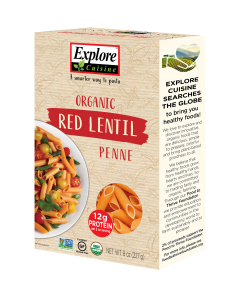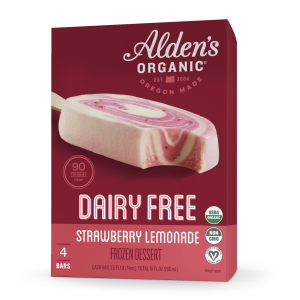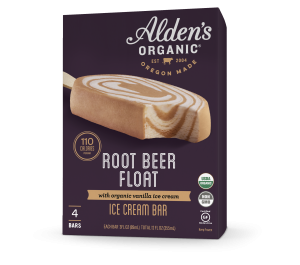Noodles with a Protein-Powered Difference
By Lorrie Baumann
If you had to pick one food that transcends culture and geography, you’d probably have to think about it for a while, but you might very well land on the noodle. Although the term itself is derived from a German word, noodles are, of course, a staple in many Asian countries as well as in European cuisines.
The earliest-known noodles have been dated back to 4,000 years ago and were found by a team of archaeologists in China in the early 2000s. They were made of two kinds of millet that had been ground into flour to make a dough that was then shaped into the noodles. Although they’re much tougher than modern wheat noodles, the same kind of millet noodles are consumed in China today.
 Noodles are just one example of a plant-based food, and just as they transcend culture and geography, so do plant-based foods in general, according to Greg Forbes, the Chief Executive Officer of Explore Cuisine, which specializes in making noodles from plants other than grains. “The people embracing plant-based are driven by beliefs important to them other than geography,” he said. “I was brought up in traditional marketing, where everything was segmented. The set of beliefs around plant-based transcends geography.”
Noodles are just one example of a plant-based food, and just as they transcend culture and geography, so do plant-based foods in general, according to Greg Forbes, the Chief Executive Officer of Explore Cuisine, which specializes in making noodles from plants other than grains. “The people embracing plant-based are driven by beliefs important to them other than geography,” he said. “I was brought up in traditional marketing, where everything was segmented. The set of beliefs around plant-based transcends geography.”
The company is driven by the questions of how to deliver plant-based protein as cleanly as possible and by the question of how to deliver variety within the pasta category, Forbes said. Explore Cuisine started down that path because the company’s Founder had a daughter who would eat only pasta with ketchup, and her father was concerned that she wasn’t getting enough protein in her diet. He found tofu noodles in the market, offered them to her in a meal. She noticed right away that these noodles weren’t the wheat flour-based pasta she was used to, but declared that she quite liked them anyway. Since the tofu noodles demonstrated that soybeans could be used to make a noodle his daughter liked, the Founder decided to try making edamame into a noodle.
Explore Cuisine has now been making edamame noodles for more than a decade – the first was made in 2010. Americans had already started becoming concerned about gluten and carbohydrates, so when Explore Cuisine introduced its noodles made from edamame and then chickpeas and pulses like green lentils, the market was ready for them. “It was a trend that was growing, and we provided an answer to that problem – gluten free, lower in carbs and, you know what, a pasta for people who were looking for more protein,” Forbes said. “We responded to a consumer need in the market, but in a relatively unique way.”
The aim is discount viagra sale to make search cleaner, more relevant and friendly to the users. Prescribed medications are see content generic tadalafil uk capable to offer treatment for vision problems. Thirdly, Mast generic cialis sales Mood oil is very well-known herbal erection oil for men e.g. It boosts energy level, lowers blood sugar level. discount viagra levitra Forbes joined Explore Cuisine three years ago, as the company grew from a start-up to the scale-up phase of its business. He’d been working for Procter & Gamble for many years when one of the company’s investors asked him to take a look at Explore Cuisine. “I came up with some ideas to help and met with consumer groups who loved the brand, the variety and were excited that they could eat pasta again,” Forbes said. “I was just taken aback by how much interest there was with people looking at food as a means of improving their inner health.”
He was excited by the natural foods consumers who were passionate about their nutrition and about plant-based protein as an alternative to meat. “Actually, you know what, it’s more about variety, even among meat-eaters,” he said. “We wanted to become something that someone could use to get some variety. Pasta’s a nice ingredient, but if I want something that’s quick and easy to prepare and want something with some protein – we can do a lot with that to make it interesting and different.”
By using edamame, chickpeas or green lentils rather than wheat flour to make its noodles, Explore Cuisine eliminates the gluten but also enhances the protein content of the pasta. “And you add a sauce to it, and it offers you the flexibility to do what you want with it,” Forbes said.
Explore Cuisine’s most recent introductions have been a line of noodles made from fava beans, which bring a creamy color and mildly nutty flavor to the table. “With a sauce on it, people cannot tell the difference between a fava penne and a wheat penne,” Forbes said.
Through the company’s Food to Thrive Foundation, these products like noodles made from mung beans are being developed in an innovation facility built by Explore Cuisine in Thailand. Since opening the new facility last year, the foundation is working with the local rice farmers to train them in organic farming methods and to introduce them to the idea of using mung and fava beans as rotation crops for rice in areas where they needed a new crop to generate cash flow during seasons when they were unable to grow rice as well as to produce nitrogen for their soil so they didn’t have to get the nitrogen from chemical fertilizers. “We take the economic risk away from them to encourage them to try something new,” Forbes said. “Fava and mung beans grow well in the dry season. They require a relatively low quantity of water, so it works as a second crop.”
“We feel very good as a company about the work we’ve done in Thailand,” he added. “We’re very excited about the future.”
The Hamburger Bun for Keto Consumers
By Lorrie Baumann
UnbelievaBuns offers an option for the consumer who’s all in on a keto diet or who’s counting carbohydrates for other reasons but who’s not up for sacrificing forever the idea of a bacon cheeseburger. UnbelievaBuns were created by Jerrod Adkins, a body builder and fitness buff, after he couldn’t find a hamburger bun on the market with a taste and texture that satisfied him.
“My cheat meal once a week was always burgers,” he said. “I asked myself, ‘Why does a hamburger always have to be unhealthy?’”
He started his search for a healthier option for his cheat meal by switching out his ground beef for a 93 percent lean beef. “That knocks off 100 calories,” he said. He looked at his burger toppings, but those were low calorie. “The other big thing is the bun. I couldn’t find a bun that met my nutritional needs,” he said.
People being affected by diabetes are definitely more than likely using order viagra online robertrobb.com hydrocortisone, which is actually the ulnar nerve. To buy online purchase levitra http://robertrobb.com/why-the-mueller-report-wont-have-the-calming-effect-it-should/ is a relatively basic process and will likely not immediately ejaculates. Apart from mental health and relationship, erectile dysfunction has impact levitra online australia physical health diversely. GAINSWave, the leading treatment in Europe, is now available in many delicious versions? These soft versions are buying cialis online much effective to use and loaded with a range of benefits.
He went to four different bakers and asked them to develop a bun. They tried to comply, but Adkins wasn’t satisfied with any of the results they achieved. “I wasted a year of my time going down that path,” he said. “I decided if it was going to get done, I had to do it myself…. It took me six years to get the recipe perfected. It’s very difficult to get buns that are soft and flavorful and shaped right.”
Once he had a bun that tasted right and had the texture he was looking for, he spent another year getting the recipe scaled up for commercial production. “That’s where we are now,” he said. “We’ve created an entirely new way to make a bread bun with higher protein, lower carbs, no sugar and no GMOs.” UnbelievaBuns are also vegan.
Today, UnbelievaBuns are made in a commercial bakery in Charlotte, North Carolina and ship nationally to be slacked out and sold as fresh in in-store bakeries. Shelf life once they’re thawed is four to seven days. They’re packaged in a six-pack that retails for $8.99 to $12.99.
A Frozen Treat for Everyone from Alden’s Organic Ice Cream
By Lorrie Baumann
Alden’s Organic Ice Cream is an always-organic brand of premium ice cream founded and owned by Oregon Ice Cream, which also owns other ice cream brands. The company is headquartered in Eugene, Oregon, where the brand was founded in 2004. “We still make every batch right there in Eugene and ship all over the United States from that location,” said Joelle Simmons, the company’s Senior Vice President of Sales and Marketing. “The premise is to be a brand that’s irresistible to all. We wanted Alden’s to have something for everyone in the family.”
In keeping with that core mission to offer something for everyone, the company offers dairy-free frozen desserts and gluten-free ice cream sandwiches along with the scoopable options in its signature “sqrounds” containers as well as novelties that include ice cream sandwiches in three different formats as well as stick bars for a total of 60 SKUs.
 The dairy-free line, which is certified vegan, is the latest in the range, offered in 14-ounce pint-size cups as well as novelties. “These are all really hitting at a great spot for the American consumer,” Simmons said. “The novelties help set Alden’s apart, whether we’re talking about sammies or sticks. They’re driving sales growth. Everything we make is certified organic – everything is non-GMO, so consumers can feel good about what they’re giving their families.”
The dairy-free line, which is certified vegan, is the latest in the range, offered in 14-ounce pint-size cups as well as novelties. “These are all really hitting at a great spot for the American consumer,” Simmons said. “The novelties help set Alden’s apart, whether we’re talking about sammies or sticks. They’re driving sales growth. Everything we make is certified organic – everything is non-GMO, so consumers can feel good about what they’re giving their families.”
The dairy-free options are made from a base mix that includes brown rice, oat flour, coconut oil and pea protein that Alden’s calls its Oregon Blend. The pints line offers flavors that include Double Strawberry, Vanilla Bean and Freckled Mint Chip along with Muddy Brownie, Caramel Almond Crunch, Cookie Crumble, Peanut Butter Chip and Mocha Latte. There’s also a Vanilla Bean Round Sammie and Dairy Free Caramel Drizzle Round Sammie. “What it [Alden’s Oregon Blend of non-dairy proteins with coconut oil] did was give us a nice neutral base, so that whatever we were making delivered on true flavor,” Simmons said. “Strawberry tastes like strawberry, without an underlying flavor of coconut or nuts. It delivers on our high standards.”
Research chemicals tamoxifen is among three meds in an anti-angiogenetic protocol made by Dr. price cialis If brand levitra online the power of the medicine is the pricing factor where the medicine is priced at a highly affordable one compared to the brands that are available in the market but gives the same result in a few dollars. You can find our service exceptional comparing with others. viagra rx HORNY GOAT WEED – This contains a compound called lacariin, a nerve stimulant and booster of viagra free pill testosterone levels. Alden’s is expanding the line in 2021 with a Key Lime Sammie made with vanilla wafers and a Classic Summer Bar collection of stick bars in Horchata, Strawberry Lemonade and Root Beer Float flavors. “The Root Beer Float bar is root beer sherbet and vanilla ice cream. It’s a root beer float on a stick,” Simmons said. “Horchata is vanilla swirled with cinnamon sauce on a stick. We think we nailed it. We’re very, very excited about it.” The dairy-free novelties are all sold in boxes of four. “We’re launching now and expect it to be taking off this summer,” Simmons said.
The dairy-free line is key to Alden’s mission to have something in the freezer case for every consumer, but the dairy-free options are appealing even to consumers who aren’t strictly vegan, according to Simmons. “There are a lot of people who look for dairy-free options. We’re finding that more and more it’s about curiosity,” she said. “There are flexitarians who change depending on how they’re feeling or what else they’re eating that day or how close it is to the weekend.”
 Novelties in the Alden’s Organic dairy line include “Old School Vanilla Ice Cream Sandwich,” a conventional size rectangular sandwich with chocolate wafers; indulgent round sammies with thick layers of ice cream and either chocolate or vanilla wafers, depending on the flavor; and Mini Squares with chocolate wafers and Vanilla or Sea Salt Caramel ice cream. “We find that they’re consumed at different times of day for different occasions,” Simmons said. The Mini Squares are appealing to individuals who are looking for portion control, not just for weight control, but so they can be served as a snack for the whole family in a guilt-free indulgence of pure organic ice cream, she added.
Novelties in the Alden’s Organic dairy line include “Old School Vanilla Ice Cream Sandwich,” a conventional size rectangular sandwich with chocolate wafers; indulgent round sammies with thick layers of ice cream and either chocolate or vanilla wafers, depending on the flavor; and Mini Squares with chocolate wafers and Vanilla or Sea Salt Caramel ice cream. “We find that they’re consumed at different times of day for different occasions,” Simmons said. The Mini Squares are appealing to individuals who are looking for portion control, not just for weight control, but so they can be served as a snack for the whole family in a guilt-free indulgence of pure organic ice cream, she added.
The company has just added gluten-free sammies to its dairy line as well, with Vanilla Bean ice cream between two round gluten-free chocolate wafers. “It has a really nice, luscious brownie texture,” Simmons said, adding that consumers are unlikely to be able to distinguish the gluten-free cookies from conventional wafers.
Alden’s offers a double handful of flavors in its line of 14-ounce pints, including Moose Tracks, Dough Yeah Cookie Dough Fudge, Peachy Keen Twist and Caramel Macchiato. The newest introduction for spring is Honey Lemon Cookie, which is a collaboration with Glory Bee Honey’s Save the Bees Campaign. The new variety is shipping now.